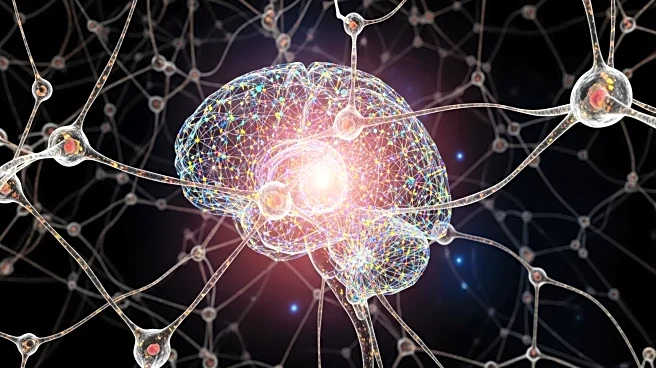What is the story about?
What's Happening?
A new study published in Molecular Biology and Evolution suggests that the high prevalence of Autism Spectrum Disorders (ASD) in humans may be linked to evolutionary developments in human intelligence. The research highlights that certain genetic changes associated with autism have evolved rapidly in humans, particularly in brain neurons that are unique to humans. These changes may have conferred evolutionary advantages, such as enhanced cognitive abilities and language skills, despite also increasing the risk of autism.
Why It's Important?
This study provides a potential explanation for the high rates of autism in humans, linking it to the evolutionary processes that have shaped human intelligence. Understanding these genetic changes can offer insights into the development of cognitive traits that are unique to humans, such as language and complex thinking. This research could influence future studies on the genetic basis of neurodevelopmental disorders and human evolution.
Beyond the Headlines
The findings suggest that the same genetic changes that contribute to human cognitive uniqueness may also increase neurodiversity. This raises questions about the balance between evolutionary advantages and the prevalence of disorders like autism, highlighting the complex interplay between genetics and evolution.
















